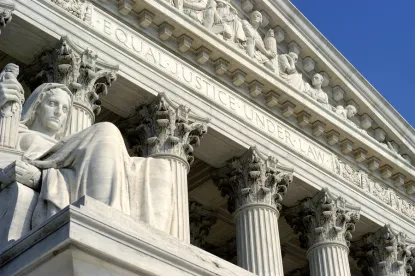On October 3, 2018, the U.S. Supreme Court heard oral argument in New Prime Inc. v. Oliveira, No. 17-340. While the case turns on what may appear to be a simple question of statutory interpretation, the outcome could have profound consequences for employers throughout the transportation industry, for hundreds of thousands of independent owner-operators, and eventually for all consumers. The Supreme Court also could issue a decision further elaborating on when questions of arbitrability must be decided by a court, and when those questions must be decided by an arbitrator.
Federal Arbitration Act’s Exemption for Transportation Workers
The Federal Arbitration Act (FAA), passed in 1925, enshrined in law a strong pro-arbitration policy. Pursuant to the FAA’s requirements, federal and state courts regularly enforce arbitration agreements, including in the employment context.
Section 1 of the FAA states that the Act does not apply to “contracts of employment of seamen, railroad employees, or any other class of workers engaged in foreign or interstate commerce.”
Prior to the commencement of the Oliveira lawsuit, many courts had interpreted Section 1’s exemption to apply only to employees, not to independent contractors (whose arbitration agreements were enforced).
The Issues
Dominic Oliveira is a long-haul truck driver. He entered into an independent contractor agreement to move freight for trucking company New Prime, Inc. Oliveira’s independent contractor agreement included a provision requiring the parties to arbitrate any disputes against each other. The agreement also required Oliveira to bring any claims he had on an individual basis only, not as part of a class, collective, or multi-party action.
Despite the terms of his independent contractor agreement, Oliveira sued New Prime, claiming he was an employee and that the company failed to pay him minimum wage for all hours worked. Oliveira also argued that the FAA’s exemption for “contracts of employment” generally refers to contracts with employees and independent contractors. Oliveira’s independent contractor agreement specifically stated that any question regarding the arbitrability of Oliveira’s claims should be decided by an arbitrator. Oliveira disregarded that provision, arguing that the question of arbitrability should be decided by a court, not an arbitrator.
The U.S. District Court for the District of Massachusetts agreed with Oliveira. The court held that “contracts of employment” includes independent contractor agreements, thus, Oliveira’s claims are exempt from the FAA and may proceed in court, rather than in arbitration. The U.S. Court of Appeals for the First Circuit affirmed the district court. It also held that the issue of arbitrability should be decided by a court, rather than by an arbitrator.
Oral Argument
At oral argument before the U.S. Supreme Court, counsel for New Prime argued that the First Circuit’s interpretation of “contracts of employment” to include independent contractor agreements is contrary to the plain meaning, structure, purpose, history, and context of Section 1 of the FAA. New Prime’s counsel urged that the word “employment,” if not defined in a special way by statute, refers to common law employment. He also told the Justices that their Circuit City decision means that they should give a narrow construction to exemptions to the FAA’s pro-arbitration requirements, and therefore, Section 1’s exemption does not apply to independent contractor agreements.
Counsel for Oliveira argued that the Court must interpret the statutory language based on its ordinary meaning at the time the statute was passed. In 1925, she noted, when the FAA was enacted, “contracts of employment” referred generally to all agreements to perform work and included both employment agreements and independent contractor agreements. She argued that because labor strife in the 1920s served as partial motivation for passage of the FAA, and because both employees and independent contractors can cause labor strife, it would make no sense for them to be treated differently.
It is never possible to predict with certainty how a Justice will vote based on the questions he or she asks during oral argument. However, several questions and comments by the Justices during oral argument suggested that Justice Sonia Sotomayor and Justice Ruth Bader Ginsburg are sympathetic to Oliveira’s argument that Section 1 of the FAA exempts independent contractors from mandatory arbitration.
The Justices will issue a decision by the end of June.
Potential Impact
If the Supreme Court holds that “contracts of employment” as used in Section 1 of the FAA include independent contractor agreements, the thousands of independent contractors who work in the transportation industry may not be required to arbitrate claims under the FAA. Because many arbitration agreements contain class action waivers and require individual arbitration of claims, such a holding could open the door to new types of class and collective action lawsuits in the transportation industry. Whatever the nature of the litigation that would emerge, it is likely that costs would rise for the trucking industry as a result of increased litigation. The increased costs likely would be passed along to consumers.







 />i
/>i

